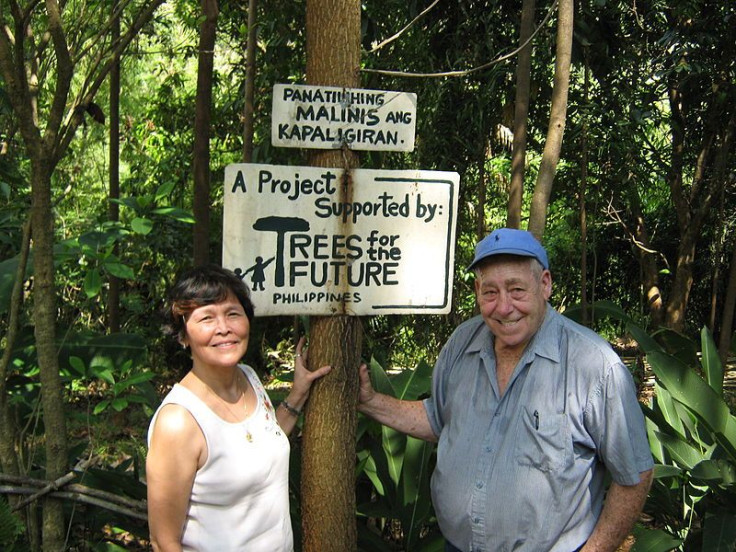Older Adults Who Volunteer Can Reduce Their Risk for Hypertension By 40%

People often say that helping others can help make a person happier themselves. According to a new study, it not only makes a person happier, but in older people, it can reduce hypertension.
Researchers at Carnegie Mellon University found that older adults who volunteered for at least 200 hours each year reduced their risk of developing hypertension, or high blood pressure, by 40 percent, according to a press release.
"Every day, we are learning more about how negative lifestyle factors like poor diet and lack of exercise increase hypertension risk," Rodlescia S. Sneed, a PhD candidate in psychology in CMU's Dietrich College of Humanities and Social Sciences and lead author of the study, said in the release. "Here we wanted to determine if a positive lifestyle factor like volunteer work could actually reduce disease risk. And, the results give older adults an example of something that they can actively do to remain healthy and age successfully."
The researchers studied 1,164 older adults between the ages of 51 and 91, with normal blood pressure. They were interviewed twice, once in 2006 and the second in 2010. They found that the participants who reported volunteering for at least 200 hours in the first interview were 40 percent less likely to have hypertension than those who did not volunteer upon being interviewed the second time.
The results found that the type of volunteer work didn't matter, only the number of hours spent doing it.
"As people get older, social transitions like retirement, bereavement and the departure of children from the home often leave older adults with fewer natural opportunities for social interaction," Sneed said. "Participating in volunteer activities may provide older adults with social connections that they might not have otherwise. There is strong evidence that having good social connections promotes healthy aging and reduces risk for a number of negative health outcomes."
The findings support a 2010 study, which examined frailty and its relation to 1,072 adults between 70 and 79 years old who either volunteered, performed childcare duties, or worked. After three years, all groups saw a reduced rate of frailty, however, when the researchers accounted for levels of physical and cognitive function, it was the volunteers who showed the most reduction in rates.
The authors of the study said that they would need a randomized trial to determine whether it's the act of volunteering reduced that rate, or something about the types of people who volunteer that reduces the rate. However, it wasn't only older adults who showed improvements in health through volunteering, suggesting that maybe it's just the act of giving back that can make a person healthier.
In a February study, researchers split 106 students in grade 10 from an urban, inner city Vancouver high school into two groups. Their body mass index (BMI), inflammation, and cholesterol levels were measured at the beginning of the study, as well as their self-esteem, mental health, mood, and empathy. One group volunteered for one hour each week, working with elementary school children in after-school programs, while the other group was put on a wait-list for volunteer activities.
After 10 weeks, they were tested again, and researchers found that they had lower BMIs, and inflammation and cholesterol levels than the group that stayed on the wait-list.
"It was encouraging to see how intervention to support members of the community also improved the health of adolescents," Hannah Schreier, lead researcher of the study and postdoctoral fellow at the Icahn School of Medicine at Mount Sinai Hospital in New York, said in a release. "The volunteers who reported the greatest increases in empathy, altruistic behavior, and mental health were the ones who also saw the greatest improvements in their cardiovascular health."
Heart disease can occur as a direct result of hypertension and inflammation. Every year, about 600,000 people die from heart disease, or one out of every four people. In addition to this, about 715,000 people experience heart attacks. Risk for heart disease can begin as early as adolescence as well, especially among the obese, with 70 percent of adolescents aged five to 17, having at least one risk factor, according to the Centers for Disease Control and Prevention.
Sources:
Jung Y, Gruenewald T, Seeman T, et al. Productive Activities and Development of Frailty in Older Adults. The Journals of Gerontology. 2009.
Schreier H, Schonert-Reichl K, Chen E. Effect of Volunteering on Risk Factors for Cardiovascular Disease in Adolescents: A Randomized Controlled Trial. JAMA Pediatrics. 2013.
Published by Medicaldaily.com



























